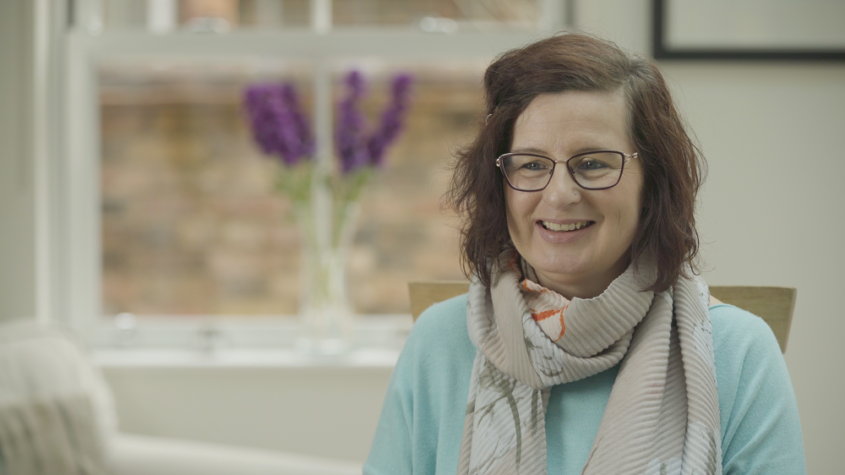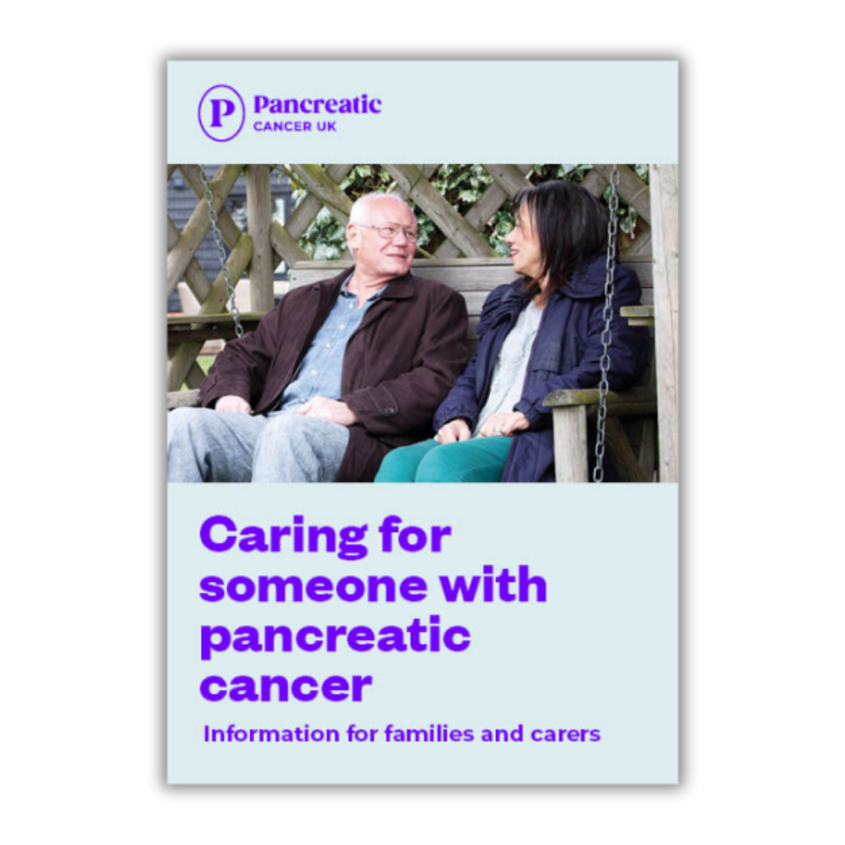We're here for you
You can contact our specialist nurses on our free Support Line on 0808 801 0707 or email them.
If you are caring for someone with pancreatic cancer, you might feel like you have to take a lot on all by yourself. But there is support available. Asking for or accepting help is not a sign of weakness, or that you can’t cope. You can get psychological (emotional) support to help you cope with the emotional impact of caring for someone with cancer.
The medical team looking after your family member can help you. This might be the GP, specialist nurse, or community nurse. They can answer your questions as well as providing emotional support and medical care.
If your loved one is at home, you may have carers or health care assistants coming in to support the care needs of your family member. The home care workers may also provide emotional support to everyone in the family home as you have regular contact with them.
Our specialist nurses can talk for as long as you need, as often as you like. Whether you have a long list of questions or don’t know where to start, they will provide practical, honest information to help you make the right choices.
You can contact our specialist nurses on our free Support Line on 0808 801 0707 or email them.


Counselling or ‘talking therapy’ involves talking to a trained professional about your thoughts and feelings. It may help you work through how you feel, and find ways of coming to terms with things.
You may be able to access therapy through your GP, local hospital, hospice or cancer support centre. And Mind have information about how to find a counsellor or therapist. You can also refer yourself to psychological therapies through the NHS website.
Bear in mind that there are often waiting lists for counselling services. It might be worth looking into a few different options. Depending on where you live, you may also be able to access online self-help services for free. These include SilverCloud wellbeing programmes in Scotland and Wales.
There are organisations across the UK that provide information, help and emotional support to people caring for someone with cancer. These include Carers UK, Carers Trust, Macmillan Cancer Support and Maggie’s. If you live in Wales, you can get support from Tenovus Cancer Care. If you live in Northern Ireland, Cancer Focus Northern Ireland and Action Cancer provide support.
“I've often felt very alone since my husband has been diagnosed with pancreatic cancer. I feel guilty to be struggling emotionally, but I found talking to other carers really helpful and comforting.”
Supporting someone with pancreatic cancer may mean that life is busy and often overwhelming.
Practical support can help you cope emotionally. It can reduce the stress from managing everything, give you a chance to take a break, and help you feel less alone.
Family and friends will often be happy to help out, as it’s a practical way of supporting you and your loved one. Write down all the things that need to be done to support your family member. See what tasks or activities you can ask for help with. This is also a good way of finding some time for yourself.
Here are some examples of practical support that other families have found helpful.
“I could not have managed without close family coming in to take over running my house while I focused on my husband.”
There are lots of ways you may be able to get local support. We have more information about accessing care and support for your family member.
“We made time as a family to keep making new memories, even if they are simple memories of watching telly together or sitting in the garden.”
“The team at the hospice were incredible. We got to spend all day and night with her, my stepdad, siblings and partners, as well as my uncle and aunt.”
We have a lot of information to help you care for your family member in our booklet: Caring for someone with pancreatic cancer: Information for families and carers.


Updated January 2025
Review date January 2028